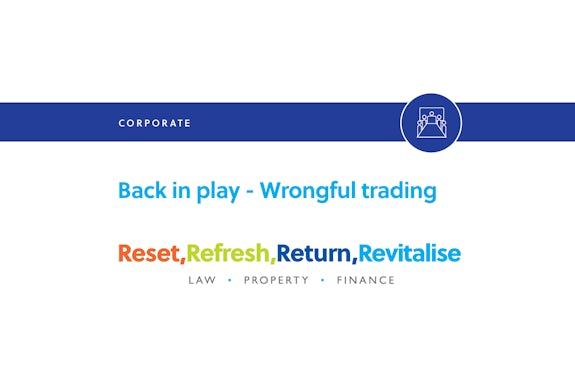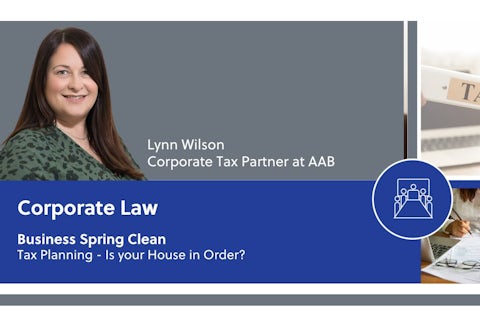As we know, the Government has agreed to continue a number of measures in various forms to try and support businesses during the ongoing pandemic. However, the further suspension of directors’ liability for wrongful trading under s214 of the Insolvency Act 1986 was not one of them.
The wrongful trading provisions impose personal liability on directors found to have over-traded while a company was insolvent. Directors who do so to the detriment of the company’s creditors will fall foul of the wrongful trading regime. By removing the risk of personal liability, the Chancellor sought to provide directors with the personal protection they required to allow businesses to continue to trade during Covid. Now that protection is no longer in place, continuing to trade when there is no reasonable prospect of insolvency can have dire consequences for directors, including personal liability for debts and trading losses. Creditors could also commence direct action against the director and protection of limited liability might not apply.
Accordingly, now that directors are from 30 September no longer protected by the suspension of the wrongful trading rules, it is even more essential that they are aware of the steps they should be following now should the business become insolvent and to ensure that they are acting in the best interests of the company’s creditors.
Whilst Government tightening of restrictions has fallen short of a second lockdown, the months ahead will likely see an increasingly large number of company directors facing difficult decisions in very financially challenging times – should they continue trading or seek protections by commencing insolvency processes? In doing so, directors need to:
- continue to closely and continually evaluate the company’s financial position and both raise concerns and act to address them immediately;
- be mindful of the interests and needs of all key stakeholders and creditors and recognise in financial difficulties the company’s creditors’ best interests come first;
- document all decision making with justifications and hold regular board meetings that are fully and properly minuted;
- act with caution and seek professional advice at an early stage to limit their personal liability.
As restrictions increase again and financial projections become even more uncertain, directors need to carefully consider now whether they can continue to trade going forward. They need to fully assess the position at this point and, where appropriate, begin taking all necessary steps now to protect their position.
If you would like further information on the topic discussed in this blog, please contact Craig Darling by email: cdarling@gilsongray.co.uk or by phone: 0141 530 2044 / 07841 920 467 . You can also view Craig’s profile by clicking here.
The information and opinions contained in this blog are for information only. They are not intended to constitute advice and should not be relied upon or considered as a replacement for advice. Before acting on any of the information contained in this blog, please seek specific advice from Gilson Gray.








